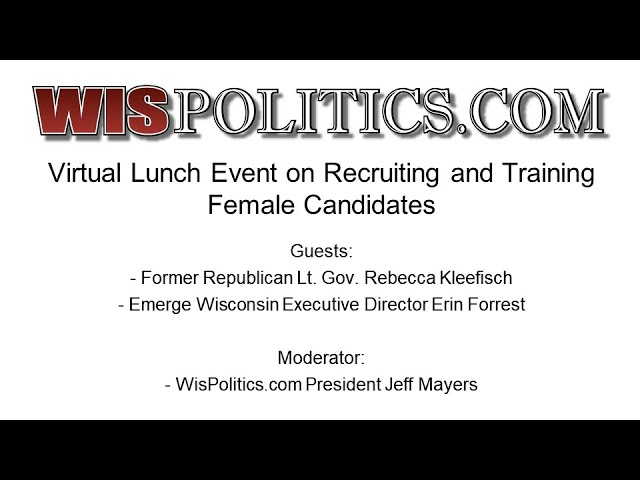Former Lt. Gov. Rebecca Kleefisch says electing more women to the state Legislature would help reduce the partisan divide that has recently gripped Wisconsin.
Speaking during a WisPolitics.com virtual luncheon along with Emerge Wisconsin Executive Director Erin Forrest, Kleefisch said she sees collaboration as a key skill female candidates bring to the table.
“I think compromise is really, really ...
Please log in to access subscriber content.
If you don't have a subscription, please contact schmies@wispolitics.com for subscription options on the WisPolitics-State Affairs platform, which is the new home for WisPolitics subscriber products.


